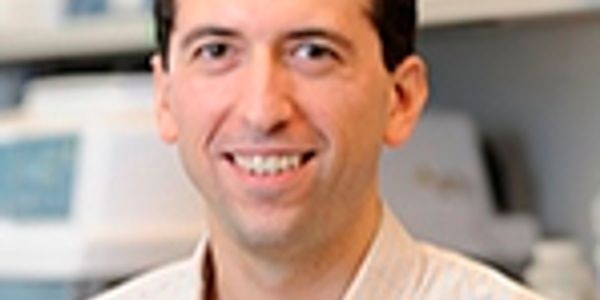Tumor
Tumor: is an abnormal mass of tissue that may be solid or fluid-filled. A tumor is not the same as cancer. Although, some tumors can develop into cancers. A tumor is a kind of lump or swelling and does not necessarily pose a health threat.
-
OCT 16, 2013 | 6:00 AMThe knowledge of molecular alterations involved in colon carcinoma (CRC) and non-small-cell lung carcinoma (NSCLC) has significantly increased in the past few years. Molecular subgroups of t...Speaker: Nicola Normanno, MDAUG 22, 2013 | 5:00 PMAs Chief of Scientific Intelligence at the John Wayne Cancer Institute, Dr. Hoon interacts with external academic, industry, and government agencies to develop innovative translational rese...AUG 22, 2013 | 1:00 PMPersonalized medicine is transforming biomedical research and healthcare service delivery. Disease definition, diagnosis, treatment, and prevention are being fundamentally altered by the capa...Speaker: Kenneth Buetow, PhD, FACMIPresented at: Genetics and Genomics Virtual Event Series 2013
AUG 21, 2013 | 4:00 PMC.E. CREDITSHigh throughput transcriptomic analyses have shown that most of the human genome is dynamically transcribed to produce an extraordinary range of overlapping and interlacing intronic, intergen...Speaker: John Mattick, PhD,AO, FAA, FRCPAPresented at: Genetics and Genomics Virtual Event Series 2013
AUG 21, 2013 | 3:00 PMC.E. CREDITSThe remarkable diversity we see between different cell types in the human body is governed by the specificity attained through transcriptional and epigenetic regulatory programs. Cancer is a...AUG 21, 2013 | 12:00 PMWhenever there is cell death, apoptotic cell free DNA fragments appear in the circulation of the host. These fragments, typically 145-160 base pairs in size, represent a minute fraction of to...AUG 21, 2013 | 10:00 AMC.E. CREDITSMassively parallel sequencing technology has proven to enable the identification of driver genetic alterations in patients' tumors that may be suppressed by targeted therapies. Through retros...MAY 30, 2013 | 9:00 AMSurvival rates for early stage non-small cell lung cancer (NSCLC) remain unacceptably low compared to other common solid tumors. This mortality reflects a weakness in conventional staging, as...OCT 26, 2011 | 2:00 PMAutophagy is a normal degradative pathway that involves the sequestration of entire organelles, protein complexes, and misfolded proteins in a membrane vacuole called the autophagosome. The ...
OCT 16, 2013 | 6:00 AM
The knowledge of molecular alterations involved in colon carcinoma (CRC) and non-small-cell lung carcinoma (NSCLC) has significantly increased in the past few years. Molecular subgroups of t...
Speaker:
Nicola Normanno, MD
AUG 22, 2013 | 5:00 PM
As Chief of Scientific Intelligence at the John Wayne Cancer Institute, Dr. Hoon interacts with external academic, industry, and government agencies to develop innovative translational rese...
AUG 22, 2013 | 1:00 PM
Personalized medicine is transforming biomedical research and healthcare service delivery. Disease definition, diagnosis, treatment, and prevention are being fundamentally altered by the capa...
Speaker:
Kenneth Buetow, PhD, FACMI
Presented at: Genetics and Genomics Virtual Event Series 2013
AUG 21, 2013 | 4:00 PM
C.E. CREDITS
High throughput transcriptomic analyses have shown that most of the human genome is dynamically transcribed to produce an extraordinary range of overlapping and interlacing intronic, intergen...
Speaker:
John Mattick, PhD,AO, FAA, FRCPA
Presented at: Genetics and Genomics Virtual Event Series 2013
AUG 21, 2013 | 3:00 PM
C.E. CREDITS
The remarkable diversity we see between different cell types in the human body is governed by the specificity attained through transcriptional and epigenetic regulatory programs. Cancer is a...
AUG 21, 2013 | 12:00 PM
Whenever there is cell death, apoptotic cell free DNA fragments appear in the circulation of the host. These fragments, typically 145-160 base pairs in size, represent a minute fraction of to...
AUG 21, 2013 | 10:00 AM
C.E. CREDITS
Massively parallel sequencing technology has proven to enable the identification of driver genetic alterations in patients' tumors that may be suppressed by targeted therapies. Through retros...
MAY 30, 2013 | 9:00 AM
Survival rates for early stage non-small cell lung cancer (NSCLC) remain unacceptably low compared to other common solid tumors. This mortality reflects a weakness in conventional staging, as...
OCT 26, 2011 | 2:00 PM
Autophagy is a normal degradative pathway that involves the sequestration of entire organelles, protein complexes, and misfolded proteins in a membrane vacuole called the autophagosome. The ...









